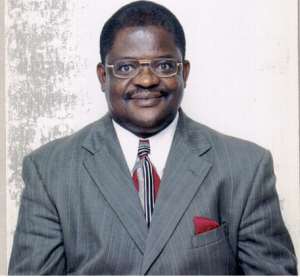
The Lord has impressed it upon my heart to call the attention of the Christian Community to refresh our memory regarding the harm that false prophets inflict upon the church. This didactic message is a caution to all Christians in general but Ghanaian churches in particular.
Since the beginning of 2019, I have watched, listened, and read from various media outlets about the proliferation of false prophecy in Africa, particularly in Ghana. However, the Christian Community is not bereft of divine instruction from Holy Scriptures in how to detect and address false prophecy that creeps its way into the Church.
The following is the acid test to determine who is a true prophet and who is a false one.
- Does the prophet use fortune telling? Divination was expressly forbidden by God (Deut. 18:9-14). No true teacher or prophet would use fortune-telling or have any dealings with spirits of the dead (Jeremiah 14:14; Ezekiel 12:24; Micha 3:7).
- Have the prophet’s short-term prophecies been fulfilled? Deuteronomy 18:22 used this as a test. Do predictions come to pass? Are the prophet’s predictions fulfilled?
- Is the prophet marked by the desire to say only what pleases people? Many false prophets told people what they wanted to hear. A true prophet serves God, not people (Jeremiah 8: 11; 14:13; 23:17; Ezekiel 13:10; Micha 3:5).
- Does the prophet draw people away from God? Many teachers draw people to themselves or to the system or organization they have built (Deut. 13:1-3).
- Does the prophet’s prophecy confirm the Bible’s main teaching? If a prophecy is inconsistent with or contradictory to Scripture, it is not to be believed.
- What is the prophet’s moral character? Does the prophet change wives as he discards newspapers? Does he have more than one wife? If he is divorced what was the reason for the divorce? False prophets were charged with lying (Jeremiah 8:10; 14:14, drunkenness (Isaiah 28:7), and immorality (Jeremiah 23:14).
- Do other Spirit-led people discern authenticity in this prophet? Discernment by others who are led of the Spirit is a key test (1 Kings 22:7). The New Testament speaks of discernment a great deal (John 10:4-18; 1 Corinthians 2:14; 14:29, 32; 1 John 4:1).[1]
I based the teaching mostly on the Old Testament because that is where many false prophets draw their messages and put their emphasis. The New Testament focuses more on Jesus because all Scriptures find their fulfillment in Jesus Christ. My final exhortation is that every Christian should become a student of the Bible, especially Christians in Ghana. Walk by faith and not by sight.
[1]I derived this study from Life Application Study Bible notes on Jeremiah 9.




 Saglemi Housing Project will not be left to rot – Kojo Oppong Nkrumah
Saglemi Housing Project will not be left to rot – Kojo Oppong Nkrumah
 Transport fares hike: GPRTU issue two-day ultimatum
Transport fares hike: GPRTU issue two-day ultimatum
 ARC endorses Alan as presidential candidate – Buaben Asamoa
ARC endorses Alan as presidential candidate – Buaben Asamoa
 Akufo-Addo appoints Kwasi Agyei as new Controller and Accountant-General
Akufo-Addo appoints Kwasi Agyei as new Controller and Accountant-General
 PNC dismiss reports of mass resignations
PNC dismiss reports of mass resignations
 PAC advocates for revenue collectors to be engaged on commission basis, not full...
PAC advocates for revenue collectors to be engaged on commission basis, not full...
 Genser Energy commissions 110km of natural gas pipeline at Anwomaso
Genser Energy commissions 110km of natural gas pipeline at Anwomaso
 Naa Torshie calls for tolerance, peace ahead of 2024 election
Naa Torshie calls for tolerance, peace ahead of 2024 election
 Asantehene commends Matthew Opoku Prempeh for conceiving GENSER Kumasi Pipeline ...
Asantehene commends Matthew Opoku Prempeh for conceiving GENSER Kumasi Pipeline ...
 Let’s do away with ‘slash and burn politics’ in Ghana — Dr Adutwum
Let’s do away with ‘slash and burn politics’ in Ghana — Dr Adutwum
